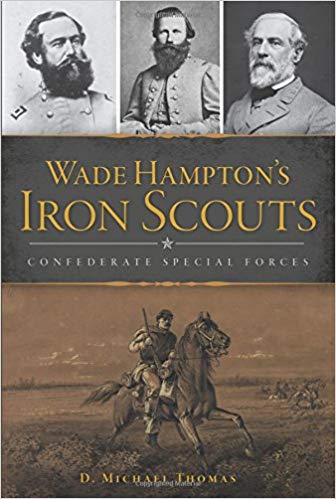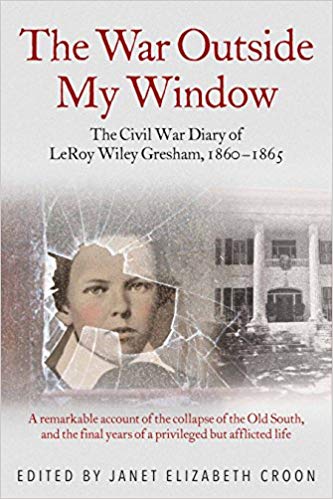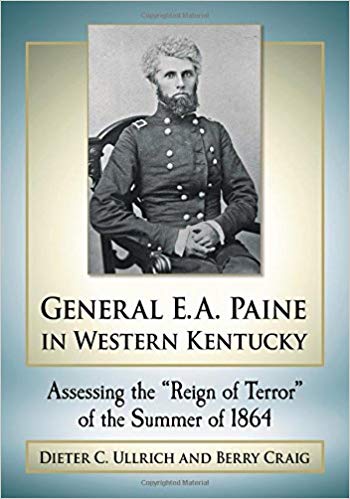Wade Hampton’s Iron Scouts by D. Michael Thomas. The History Press, 2018. Paper, ISBN: 9781467139380. $21.99
 Robert E. Lee was a general who cherished the military initiative as a key component to strategic and tactical success. Essential to maintaining that initiative was sound, up to date intelligence. For this purpose, Lee relied heavily on his cavalry, led by the plumed J.E.B. Stuart. Nonetheless, as author D. Michael Thomas argues in his work Wade Hampton’s Iron Scouts, Stuart’s large command was unfit for certain aspects of intelligence gathering. The need for a smaller unit operating behind and within enemy lines led to the creation of the “Iron Scouts.”
Robert E. Lee was a general who cherished the military initiative as a key component to strategic and tactical success. Essential to maintaining that initiative was sound, up to date intelligence. For this purpose, Lee relied heavily on his cavalry, led by the plumed J.E.B. Stuart. Nonetheless, as author D. Michael Thomas argues in his work Wade Hampton’s Iron Scouts, Stuart’s large command was unfit for certain aspects of intelligence gathering. The need for a smaller unit operating behind and within enemy lines led to the creation of the “Iron Scouts.”
A platoon-sized detachment of men from North and South Carolina, Georgia, Alabama, and Missouri, the Iron Scouts numbered seventy-two soldiers. They served in this specialized unit for twenty-eight months. Of these men, several emerged as strong leaders, apt to this type of work and deeply concerned about the safety of those under their leadership. But what is it about their service that merits a closer look in book-length form?
The author argues that although the unit is best known for the Great Beefsteak Raid in September 1864 and the Battle of Monroe’s Crossroads in March 1865, no article or book-length study has yet been published on the Iron Scouts. Additionally, their wartime exploits provide a unique perspective on the war; Thomas contends that the Iron Scouts had the most dangerous job in the Army of Northern Virginia. Finally, Thomas argues that if Lee, Hampton, and Stuart listened when the scouts talked, we should listen today.
The narrative, however, can be challenging at times from what it does not tell us. Throughout the book, Thomas repeatedly tells the reader that there is “no hard evidence,” “no record of,” or “no written accounts of [the Iron Scouts’] involvement,” in particular events. Members of the unit were not permitted to talk about their exploits, and only in 1900 did it become acceptable for them to present their clandestine activities in any sort of detail. But by that time, many of the scouts had already gone to their last bivouac without leaving an account of their work behind.
This book, then, is an interesting—albeit short and incomplete—look at a Confederate unit that has commanded precious little attention from historians and scholars.
Dan Welch is the co-author of The Last Road North: A Guide to the Gettysburg Campaign, 1863.



